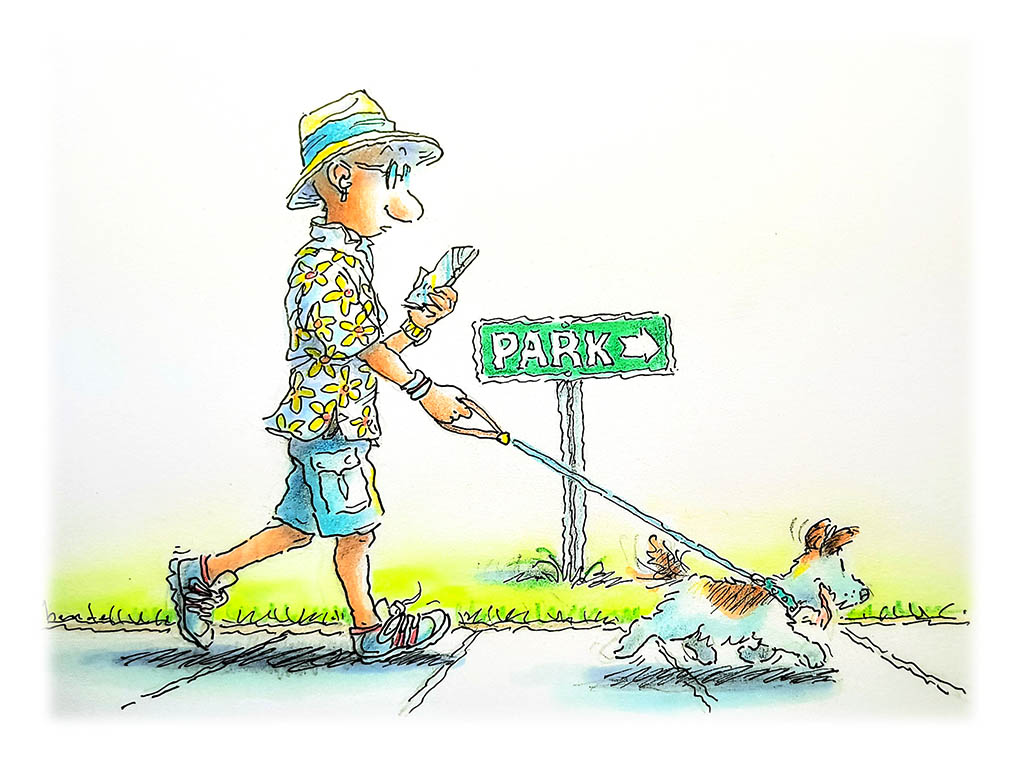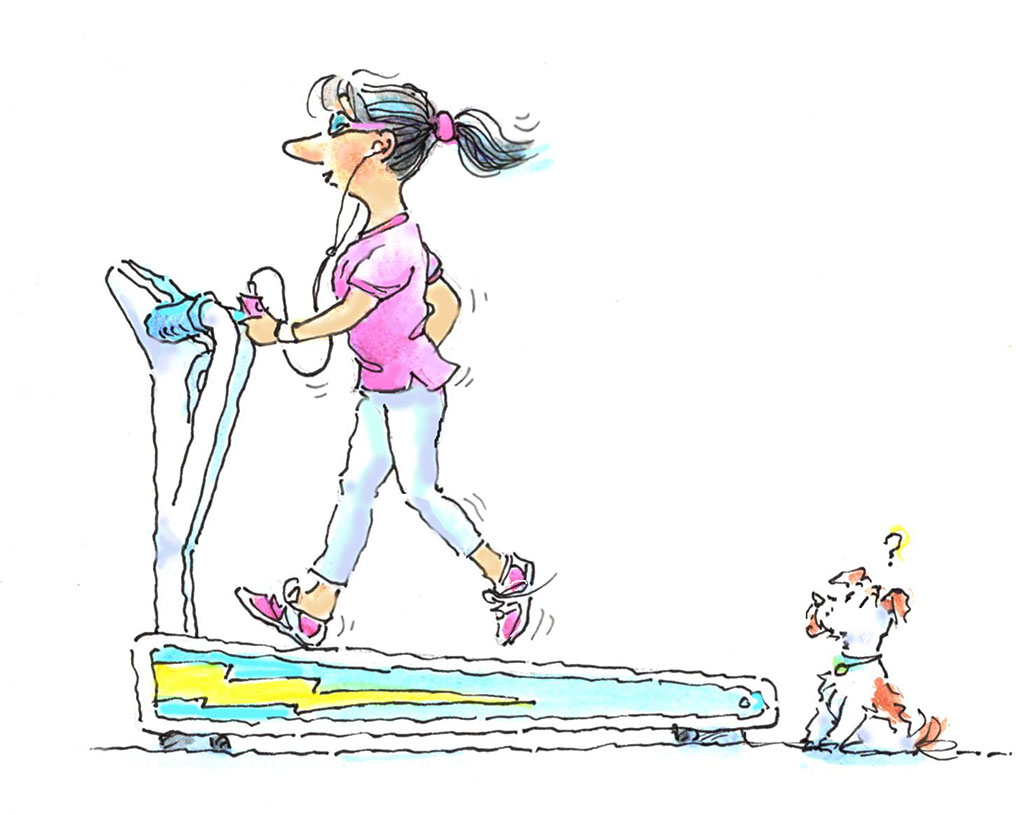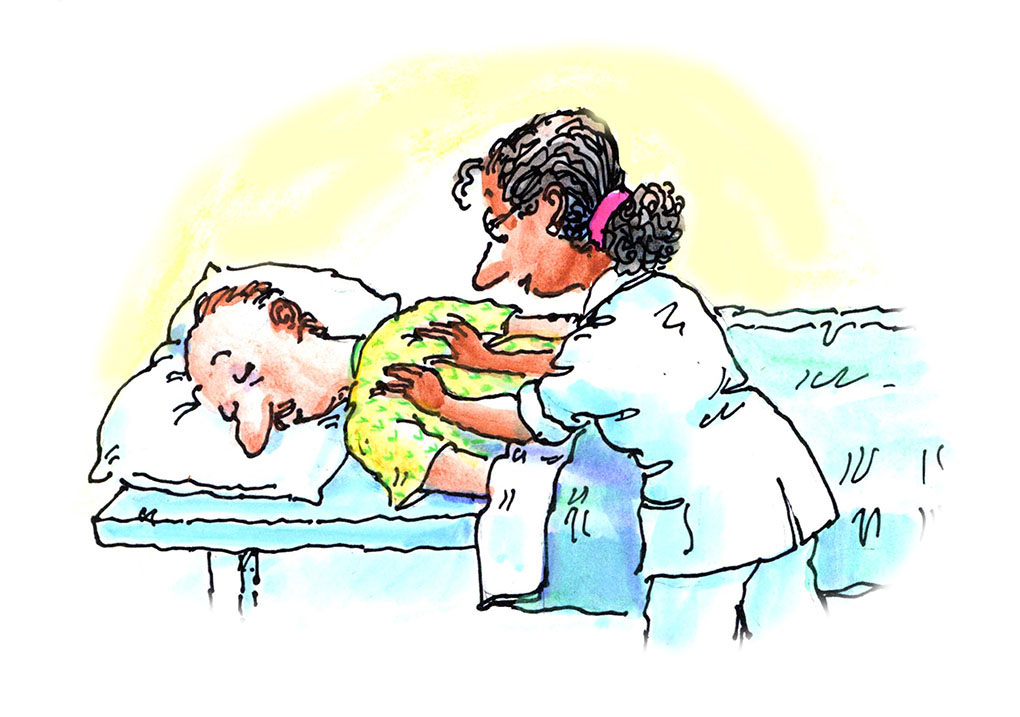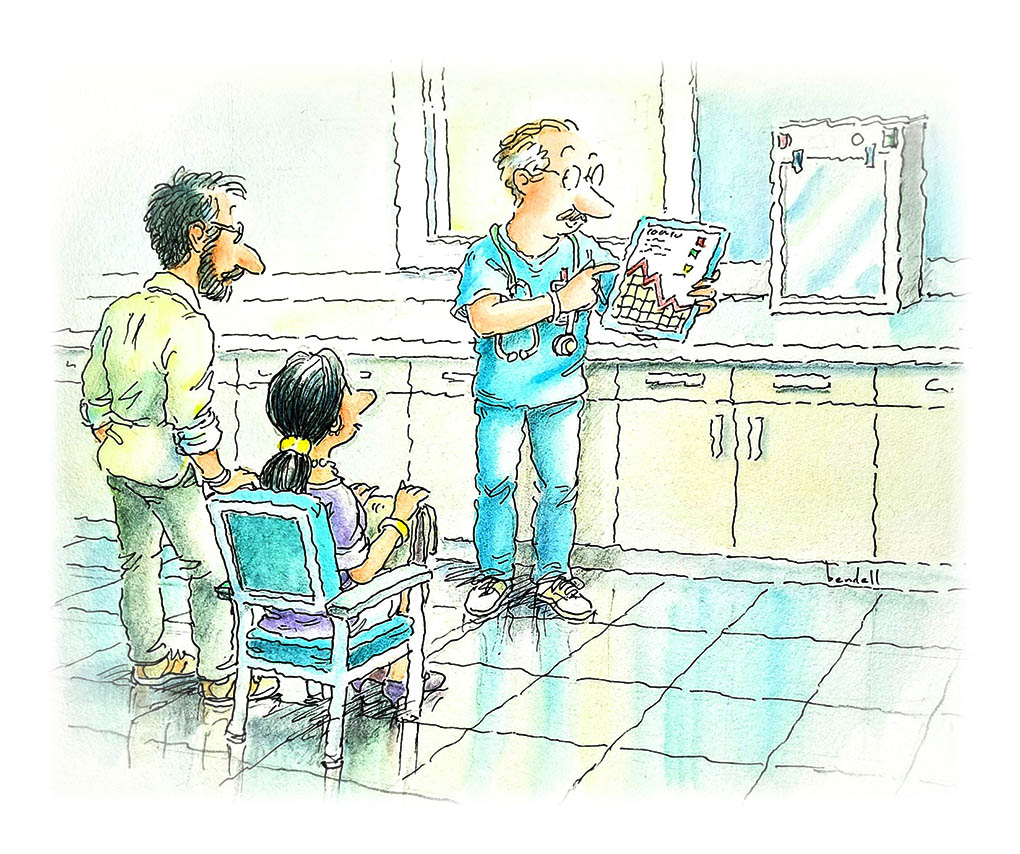Late and Long-Term Side Effects
Some of the side effects of a stem cell transplant are not apparent until several months, or even years after treatment. Some early complications can persist long-term.
Some early side effects of transplant may persist for several months or even years, such as:
- cognitive challenges (learning, memory and attention problems)
- chronic fatigue
- difficulty falling and staying asleep
- sexual difficulties
- hormonal changes
- infertility
- graft-versus-host disease (GVHD) if you were transplanted with donor cells
Less frequently, patients experience:
- breathing problems
- neuropathy (nerve damage)
- dental problems
- kidney or blood pressure issues
- osteoporosis
- heart problems
- a new cancer (secondary cancer)
No one experiences all of these complications. Ask your doctor if you're likely to develop late complications and, if so, which ones. Many problems are preventable with proper screening, preventive measures, and lifestyle changes.
- Chronic Graft-versus-Host Disease
Chronic graft-versus-host disease (cGVHD) is a complication that affects approximately 50 percent of patients who are transplanted with donor cells (allogeneic transplant). It is not a potential complication for patients who were transplanted with their own cells (autologous transplant).
Chronic GVHD typically develops three or more months after transplant, but it can begin earlier as well. GVHD can be mild, moderate or severe. Therapies to prevent and treat it are discussed in the Graft-versus-Host disease section of our website.
- Cognitive Challenges (Attention, Organization, and Memory Problems)
 For many patients, a surprising side effect of transplant is a change in the way they process information. Called cognitive changes or ‘chemobrain’, this side effect can be very frustrating for both the survivor and loved ones.
For many patients, a surprising side effect of transplant is a change in the way they process information. Called cognitive changes or ‘chemobrain’, this side effect can be very frustrating for both the survivor and loved ones.For most people, the changes are subtle and resolve over time, but for some they are more severe and last longer. Problems may include:
- memory lapses
- trouble concentrating
- difficulty multitasking
- problems with organization
- difficulty remembering words during a conversation
Ask your doctor to check whether medications or a medical issue is causing the problem. Exercise has been shown to improve cognitive functioning. A neuropsychologist can evaluate your cognitive symptoms using testing and help you devise a plan to manage these issues.
- Chronic Fatigue
 Chronic fatigue is common after transplant. It can interfere with mood, physical activity, job or school performance, and sleep. Unlike the fatigue that most people experience from time to time, rest does not relieve it.
Chronic fatigue is common after transplant. It can interfere with mood, physical activity, job or school performance, and sleep. Unlike the fatigue that most people experience from time to time, rest does not relieve it.Some medical problems such as low blood counts, thyroid problems, and adrenal insufficiency can cause chronic fatigue. So can decreased physical activity, stress, and sleep disruption.
Your healthcare team can check for several medical causes that are easy to treat. Daily exercise and physical activity can improve symptoms of fatigue.
If fatigue interferes with your ability to work, talk with your employer about alternate ways to manage your workload. Set realistic goals, perhaps shorten hours, work from home, or request a disability leave of absence. Your transplant team should be able to document your need for work modifications if necessary.
- Difficulty Sleeping
Sleep problems are common among transplant survivors and can persist for years. Insufficient sleep over a long period of time can contribute to serious health problems such as heart disease, diabetes, and obesity.
Your healthcare team may prescribe medication for insomnia. However, the American College of Physicians recommends that adults receive cognitive behavioral therapy (CBT-I) as the first-line treatment for insomnia. CBT-I helps patients understand their sleep patterns and change thoughts and behaviors that interfere with sleep.
You can find a therapist trained in CBT-I through the Society for Behavioral Sleep Medicine (859-312-8880).
You can also find helpful online CBT-i programs and apps online such as CBT-i Coach and Insomnia Coach.
- Sexual Health
 Sexual difficulties are common after transplant. One study found that nearly half of men and 80 percent of women reported lower sexual activity five years after transplant.
Sexual difficulties are common after transplant. One study found that nearly half of men and 80 percent of women reported lower sexual activity five years after transplant.Physical as well as psychological factors can contribute to problems with intimacy. Sexual difficulties can best be resolved when working on the problem with your partner, rather than alone. A certified sex therapist can help you address the problems.
Ask your healthcare team for a referral to a certified sex therapist or contact the American Association of Sex Educators, Counselors, and Therapists.
Sexual Difficulties for Women
Problems women report most often are:
- decreased interest in sex
- decreased physical response, arousal, and/or pleasures
- pain during sex
- difficulty reaching orgasm
- change in body image/perceived attractiveness
Depending on the cause of the problem, treatment may include:
- vaginal moisturizers
- water- or silicon-based lubricants designed for intercourse
- hormone replacement therapy
- vaginal dilators
- pelvic floor physical therapy for women with vaginal graft-versus-host disease (GVHD)
Treatment for sexual problems is most effective when addressed early after transplant. Ask for help as soon as you notice that you are having difficulty.
Watch a video about women’s sexual health after transplant.
Sexual Difficulties for Men
Sexual problems often reported by men after transplant include:
- decreased interest in sex
- problems getting and/or keeping an erection
- difficulty reaching orgasm
- pain with erection and climax
- performance anxiety
- change in body image/perceived attractiveness
Therapies available that may improve your sexual function include:
- testosterone replacement therapy
- oral drugs to treat erectile dysfunction
- intracavernosal injection therapy which increases blood flow to the penis
- transurethral therapy (MUSE), vacuum therapy, and a surgically implanted penile prosthesis which can help you achieve an erection
Each of these therapies has their pros and cons which you should discuss with a urologist trained in helping men with sexual difficulties.
- Infertility
Most, but not all, patients who undergo a blood stem cell transplant will be infertile afterward. The likelihood of infertility depends on:
- your age at the time of transplant
- your gender
- whether you had already gone through puberty at the time of transplant
- type and amount of chemotherapy and/or radiation you received as part of the conditioning regimen
A variety of fertility preservation options prior to transplant as well as assisted reproduction options after transplant may enable you to build a family after transplant.
If you do not want to conceive children after transplant, contraception is strongly advised. There have been several cases of children born to women and men without assisted reproduction after transplant.
Watch a video about building a family after a transplant.
Adoption is another method some people use to build a family after transplant. The Oncofertility Consortium lists some adoption agencies that have expressed a willingness to work with cancer survivors.
- Eyes/Vision Problems
Cataracts are a common with aging and may occur earlier in life than usual after transplant. If you develop a cataract, it can be surgically removed in an outpatient setting.
If you had total body irradiation, you might experience dry eyes after the transplant. The problem can usually be managed with topical treatments.
Many patients who had a transplant using donor cells (allogeneic transplant) develop ocular graft-versus-host disease (GVHD). Ocular GVHD inflames the eye's surface and can clog glands that lubricate the eye, leading to pain and even blindness if not treated promptly.
Go to the Graft-versus-Host Disease section of this website to learn more about ocular GVHD.
- Lung Complications
Bronchiolitis obliterans syndrome (BOS), also called graft-versus-host disease (GVHD) of the lungs, occurs in approximately 5% of patients who were transplanted with donor cells (allogeneic transplant). It does not occur in patients who were transplanted with their own cells (autologous transplant).
Watch a video about lung GVHD.
Occasionally, patients develop inflammation in the lungs (pneumonitis) that may cause scarring. Risk factors include:
- infection
- chest radiation that involves the lungs
- exposure to bleomycin
- high dosages of certain chemotherapies such as carmustine (BCNU), and busulfan
Keeping up to date with your vaccination schedule, exercise, and not smoking cigarettes, e-cigarettes, cigars, a pipe, or marijuana are important steps you can take to help prevent lung problems.
- Neuropathy (Nerve Damage)
Medications used during transplant, chronic GVHD, and other factors like uncontrolled diabetes can cause neuropathy.
There are two types of neuropathy:
- peripheral neuropathy, which usually affects sensation in the hands and feet
- autonomic neuropathy which can interfere with many bodily functions
 Symptoms of peripheral neuropathy include tingling, prickling, lack of sensation, coldness, burning sensation, and shooting or stabbing pain in the hands or feet.
Symptoms of peripheral neuropathy include tingling, prickling, lack of sensation, coldness, burning sensation, and shooting or stabbing pain in the hands or feet.Autonomic neuropathy can cause lightheadedness upon standing, dry eyes, dry mouth, feeling full after eating a few bites, loss of bowel control, inability to sweat, and erectile dysfunction.
Report symptoms of neuropathy as soon as they occur. Medication as well as physical and occupational therapy can help relieve the symptoms.
- Mouth and Dental Problems
Total body irradiation, infection, medications used during transplant, and chronic GVHD can cause dry mouth, tooth decay, loose teeth, and tooth loss.
Prescription toothpaste with a high fluoride content, such as Prevident®, or fluoride rinses provided by your dentist may help prevent dental
problems after transplant.Frequent follow-up with a dentist and an annual screening for oral cancer is important to prevent serious issues.
- Skin Problems
Patients who are transplant with donor cells (allogeneic transplant) frequently develop skin graft-versus-host disease (GVHD). Skin GVHD can cause a variety of symptoms including a rash, skin tightening, and change in skin color to name a few.
Watch a video about skin GVHD.
Other potential skin problems after transplant include:
- infections,
- rashes
- hair loss
- lesions
- skin cancer
Sun exposure can increase the risk of rashes and skin cancer and can trigger or worsen GVHD. To reduce your risk of developing sun-related skin problems:
- use a broad-spectrum sunscreen with an SPF of 30 or greater
- wear sun protective clothing and sunglasses
- do not expose your skin to direct sunlight between the hours of 10 AM and 3 PM
- avoid tanning beds
It’s important to remember that the sun’s rays can be dangerous to the skin on both sunny and cloudy days.
- Bone Health
Osteoporosis
Transplant recipients often experience a significant decline in bone density during the few first years after transplant. This increases the risk of fractures due to osteoporosis.
Osteoporosis is often a ‘silent disease’ with no symptoms until a fracture occurs. Several strategies can slow the progression of osteoporosis such as:
- using bisphosphonates
- getting the recommended daily dosage of calcium
- weight-bearing exercise
- smoking cessation.
Talk with your doctor about monitoring your bone health after transplant.
Watch a video about osteoporosis.
Avascular Necrosis
Avascular necrosis (loss of blood flow to the bones) occurs in up to 20 percent of patients who are transplanted with donor cells (allogeneic transplant). The risk is greatest for those who:
- are older
- had aplastic anemia or leukemia
- received total body irradiation
- had GVHD that was treated with steroids
Avascular necrosis usually affects the hips or knees. Surgery may be required to replace the affected joint.
- Heart and Blood Vessels
Transplant survivors have a two-to-four times greater risk of developing cardiovascular disease than the general population, especially those who were treated with radiation, doxorubicin (Adriamycin®) or cyclophosphamide (Cytoxan®).
Heart problems typically occur 5-10 years after transplant and tend to develop at a younger age than the general population.
To protect your heart:
- Have regular check-ups for blood pressure, diabetes and cholesterol.
- Exercise regularly. Even moderate exercise helps.
- Do not smoke.
- Eat a low-fat diet to maintain a healthy weight.
Ask your doctor whether you should have periodic echocardiograms after transplant. Some transplant survivors, especially children, develop heart problems earlier than expected in the general population.
- Kidney Disease
Kidney disease can occur following transplant. The risk of kidney disease is greatest among patients who have multiple myeloma.
Treatment for kidney disease varies depending on the particular type of kidney problem you have. If you have kidney problems, be sure to talk with your doctor about all the medications you take, including herbal supplements, as some can make the problem worse.
- Diabetes
The conditioning regimen, graft-versus-host disease (GVHD), and the drugs to treat it and may increase your glucose level and put you at risk of developing diabetes.
Ask your physician to check your glucose levels frequently so that treatment can begin promptly to reduce your risk of becoming diabetic.
- Thyroid Function
Hypothyroidism (underactive thyroid) is common after transplant. When the thyroid gland does not make enough thyroid hormone, it can cause fatigue, weight gain, and/or sensitivity to cold.
There are effective treatments for hypothyroidism. Left untreated, hypothyroidism can lead to obesity, joint pain and/or heart disease.
Ask your doctor to check your thyroid function annually.
- Iron Overload
Some patients who received many red blood cell transfusions before or during transplant develop iron overload—too much iron in their blood. Iron overload can increase the risk of infection and affect the health of your liver and heart.
Iron overload is typically treated by removing some of your blood through a process called phlebotomy.
- Secondary Cancers
 Secondary cancers are new cancers that occur several months or years after transplant. They are different cancers than the one for which
Secondary cancers are new cancers that occur several months or years after transplant. They are different cancers than the one for which
you were transplanted.Three types of secondary cancers may occur after transplant:
- therapy-related blood cancers, such as acute myeloid leukemia (AML) and myelodysplastic syndrome (MDS)
- lymphomas, primarily post-transplant lymphoproliferative disorder (PTLD)
- solid tumors, such as breast, colon, skin, or cervical cancer
Routine annual screenings for cancer are important since problems detected early are often easier to treat than those found later.
Lifestyle changes such as eating a healthy diet, exercise, limiting sun exposure, and not smoking can reduce your risk of developing a new cancer after transplant.
- Relapse
Sometimes a patient’s disease comes back after transplant. This is called relapse.
There are a number of treatment options that may be available if relapse occurs such as:
- another transplant
- an infusion of donor cells, called a donor lymphocyte or donor leukocyte infusion (DLI), if you were transplant with donor cells.
- new therapies such as CAR T-cell therapy or bi-specific antibodies
- a clinical trial testing a new treatment
Discuss your options with your doctor. Don’t be afraid to get a second opinion from another doctor or transplant center. Different institutions often have different treatment options to offer patients.
Get help finding clinical trials at the Jason Carter Clinical Trial Search and Support Program (888-814-8610)
The Leukemia and Lymphoma Society also offers help with clinical trial searches (800-955-4572).
- Managing Worries about Late Effects
It’s normal to worry about the possibility of developing a late complication after transplant. Although your risk of developing complications may be low, it is still hard to live with uncertainty.
The social worker, psychologist or psychiatrist associated with your transplant team can help you manage anxiety about potential late complications.
You can also search BMT InfoNet’s Directory of Mental Health Providers to find a therapist who is experienced helping transplant patients address these concerns.
Your transplant has given you a new lease on life. Protecting your health requires a life-long commitment to regular check-ups, reporting new problems to your doctors, and persistence in getting the care you need to address any health issues.
Lifestyle changes can make a big difference in your long-term quality of life. Regular exercise, a good diet and limiting stress can help you make the most of your second chance at life.


